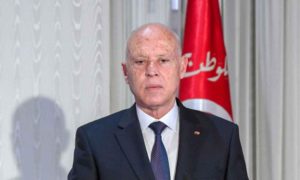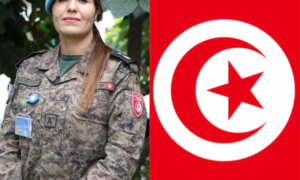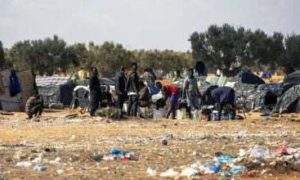Tunisie Numérique conducted a series of interviews with Tunisian families to discover how they manage their budgets in these times of crisis the country is going through.
These Tunisians come from various social classes, are of diverse ages and live in both upscale and working-class neighbourhoods. They voluntarily agreed to answer spontaneously and anonymously to the questions from Tunisie Numérique. The stories were transcribed.
Skander, 51, and Hiba, 46, both high school teachers, are married and have two children: Amine, 15, in 9th grade, and Tarak, 14, in 8th grade.
Skander confesses to us: “I had an unsuccessful marriage experience in the past, but I managed to bounce back thanks to my marriage to Hiba. We were work coworkers. Now Hiba is the mother of our two children. I continue to spend alimony to my ex-wife of 16 years, in accordance with Tunisian legislation which inflicts this financial obligation on ex-spouses. It’s a heavy monetary burden.”
The family comes from a rural region in the Kairouan governorate.
Between city and countryside:
The family possesses a five-year-old car and a home in town. Additionally, the couple owns an olive field and a house in the countryside, close to the homes of Skander’s three brothers and the home of his late parents.
Skander offers us more details: “We juggle between urban life and the countryside, where I dedicate myself to agriculture during the school holidays. I have a small olive grove that generates a fair income each year. This diversification of income aids in maintaining a relatively stable financial situation. Agriculture is our lifeline in the face of galloping inflation. For the moment… “.
Skander continues: “The cost of living in Tunisia is out of control, which directly affects our ability to save or assign a budget for summer activities and vacations, which can reach up to a thousand dinars per year.”
Skander clarifies: “In this context, I usually allocate variable amounts to save each month, depending on the circumstances. Therefore, the amount of monthly savings differs from one month to the next, oscillating between 300 and 500 dinars. We add to this the income from seasonal agricultural activities, such as the olive harvest, which can reach up to 10,000 dinars per year in the best conditions.
Financial challenges
Skander speaks about budgeting: “Life is not without financial challenges. The family’s monthly payments amount to around 1,200 dinars for food and cleaning supplies, plus costs such as electricity, water and internet services. We have to juggle all of this, and it’s not easy to say no to children.”
Hiba says and adds: “We devote a substantial part of our budget to the needs of children, in particular private lessons, as well as expenses related to Ramadan and religious festivals (Eid al-Fitr and Eid al-Adha). Despite these expenses, we aim to save each month, with variable amounts, depending on the situation. Seasonal income from the olive harvest, which can reach up to 10,000 dinars per year, likewise contributes to this savings.”
Hiba adds: “In a context where product prices continue to grow, we confront the challenge of maintaining a balanced life while attempting to respect our budget. The high cost of living pushes us to be careful in our spending while striving to ensure a stable future for our children.”
Skander gives Hiba a knowing look and proudly concludes: “Hiba manages the budget with an iron fist. She is an outstanding manager. Our couple exemplifies the perseverance and resilience required to face financial challenges in a complex middle-class economic context.”
Skander continues: “I pay monthly alimony to my ex-wife in the amount of 350 dinars, in addition to the family’s everyday expenses, which are quite elevated considering the needs and requirements of the children, without taking into account the costs of private lessons, which amount to 160 dinars per month, or even more sometimes.”
Skander ends by joking: “By the grace of God, I don’t smoke or drink alcohol, otherwise I could have ended up in jail for non-payment of this alimony for life.”
The family budget
Revenues:
- Skander’s salary: 1,600 dinars.
- Hiba’s salary: 1,600 dinars.
- Average annual income from the olive harvest: 10,000 dinars.
Expenses :
- Food and cleaning goods: 1,200 dinars per month.
- Alimony to Skander’s ex: 350 dinars per month
- STEG fees: 180 dinars.
SONEDE fees: 50 dinars. - Internet subscription fees (fixed and mobile): 40 dinars.
- Telephone communication costs: 35 dinars.
- Private lesson fees: 160 dinars per month.
Fuel consumption: 300 dinars per month. - Skander’s pocket money: 200 dinars per month.
- Pocket money from Hiba: 150 dinars per month.
- The family’s annual clothing budget is 1,500 dinars. The family often dresses in second-hand clothes.
For Ramadan, the family plans a budget of up to 1,400 dinars.
The special Eid Fitr budget is 500 dinars.
The special Aîd Kébir allocation is 700 dinars for the sacrificial sheep.
The school return budget is 800 dinars.
The family supplies an envelope of 1,000 dinars for the summer holidays.
The family profits from social security. Both parents are banked and have a savings account.
What's happening in Tunisia?
Subscribe to our Youtube channel for updates.











































